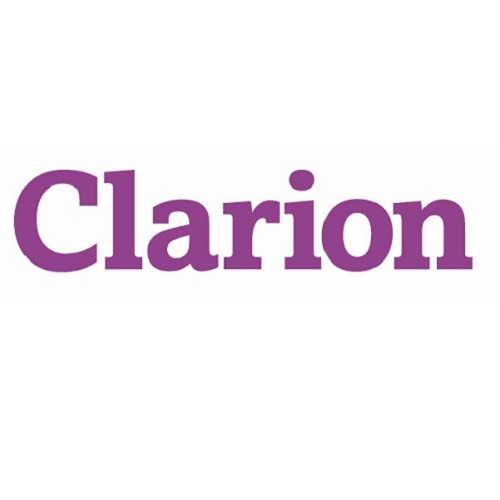Big Data in Healthcare – Leeds at the forefront of healthcare innovation

With the announcement that Leeds has become the first city in the UK to reduce childhood obesity, the region has once again demonstrated its position at the forefront of healthcare innovation. The programme to tackle childhood obesity was introduced a decade ago and the scale of Leeds’ success was measured thanks to data collected from the National Child Measurement Programme, which requires all children to be weighed at the start and end of primary school.
As the Medical Research Council recently highlighted in its report ‘Mapping the Landscape of UK Health Data’, each day, more data than ever before is being generated about our lives, our bodies and our health. This information could hold the key to unlocking medical treatments and preventing diseases, but the healthcare sector needs specialist research expertise and cutting-edge analytical methods to make sense of both the volume and complexity of the information that’s being produced.
The Leeds region can not only offer a tremendous wealth and variety of health data, but also genuine strength in analytical skills, which creates a real opportunity for the area to become a global leader in health data research, using big data in healthcare and data analytics. This topic was something we were lucky enough to explore in depth this week at a seminar held at Clarion, with 80 guests joining us at our central Leeds offices to hear from five experts in the field.
Healthcare seminar – the private sector
Among the speakers was Arsalan Karim, the Director of Research and Development at Clinova, which has developed a range of products designed to offer people healthy, more natural alternatives to things like energy drinks and heartburn and indigestion medicines. With an increase in the information we have about our health, people are able to make better, healthier choices about what they put in their bodies and Karim’s company is supplying them with options.
Karim’s company has also developed an innovative app, called Caidr®, which he described as “like having a pharmacist in your phone”. You can ask the app healthcare questions and it will guide you to what your ailment is likely to be and what might help fix it. This kind of app can only be developed with access to huge amounts of data, but will increasingly be the way forward as more and more people embrace this kind of technology to help improve their lives. Apps like this should also help, as Caidr®’s website explains, “reduce the estimated 57 million GP appointments and 3.7 million A&E visits made each year for self-treatable conditions.”
The goal of reducing pressure on overstretched health services through the use of digital technology is one also shared by Inhealthcare, whose CEO Bryn Sage was kind enough to kick off the event with his presentation. He talked us through what Inhealthcare do and how its digital health services allow information to flow between patients and their care teams – all without the patient having to leave their house. He also discussed the opportunities offered by exploiting health data – that it won’t just improve healthcare but also offers the potential for efficiency savings. This is why, as Bryn pointed out, the future of the NHS is technology – as outlined in its Long-Term Plan.
The public sector - NHS
Bryn was followed by our second speaker, Richard Irvine, Head of Data Management at NHS Digital. As his position suggests, he is a man at the centre of driving innovation in health through data, as NHS Digital are responsible for delivering key elements of the NHS Long-Term Plan. They partner with academia, research organisations, other government departments and a wealth of outside companies to help achieve their goals, such as creating interoperability within and across health systems and harnessing the latest technology to transform the way they capture and leverage healthcare data. However, Richard highlighted the need to ensure public confidence and trust in relation to citizens’ data, emphasising how seriously they take protecting people’s private information.
Technological developments
Our third speaker, Giles Hodgson, is Business Development Director at Steeper, a company that is leading the way in the provision of products across the fields of prosthetics, orthotics and assistive technology. Giles discussed technological developments in these areas and the impact they are having, describing how advances in manufacturing techniques are transforming the way prosthetics and orthotics are made, with digital modelling and 3D printing now the way forward. Looking to the future, embedded sensors will allow clinicians to remotely monitor a patient’s movement vs prescribed exercises, thereby helping to ensure their rehabilitation is optimised.
Giles also outlined how advancements in mass market products, such as voice‐controlled devices like the Amazon Echo, are crossing over into the specialised area of Assistive Technology, helping to accelerate change at a lower cost.
Response
The seminar was informative and inspiring, with feedback from the audience proving to be very positive. The event really drove home the extent to which technological change has the power to improve people’s lives. As Clarion Partner David Cunningham, speaking at the end of the event, said “Technology undoubtedly saves lives, improves lives and will ease the burden on the NHS. There’s a huge opportunity for the public and private sectors to work together and Leeds is at the forefront of that opportunity.”
Steve Crow, Strategy Director at Clarion chaired the event. He cited the news story about Leeds becoming the first city to reduce childhood obesity, saying “Without collecting data, we would never have been able to drive that change, and it will have made many people’s lives better, stronger and longer. That can only be a good thing and there are so many more opportunities for the use of Big Data to improve healthcare. It’s very exciting.”
If you're interested in the healthcare sector or the tech industry and would like to hear more, please contact our Business Development Director Steve Crow.





















